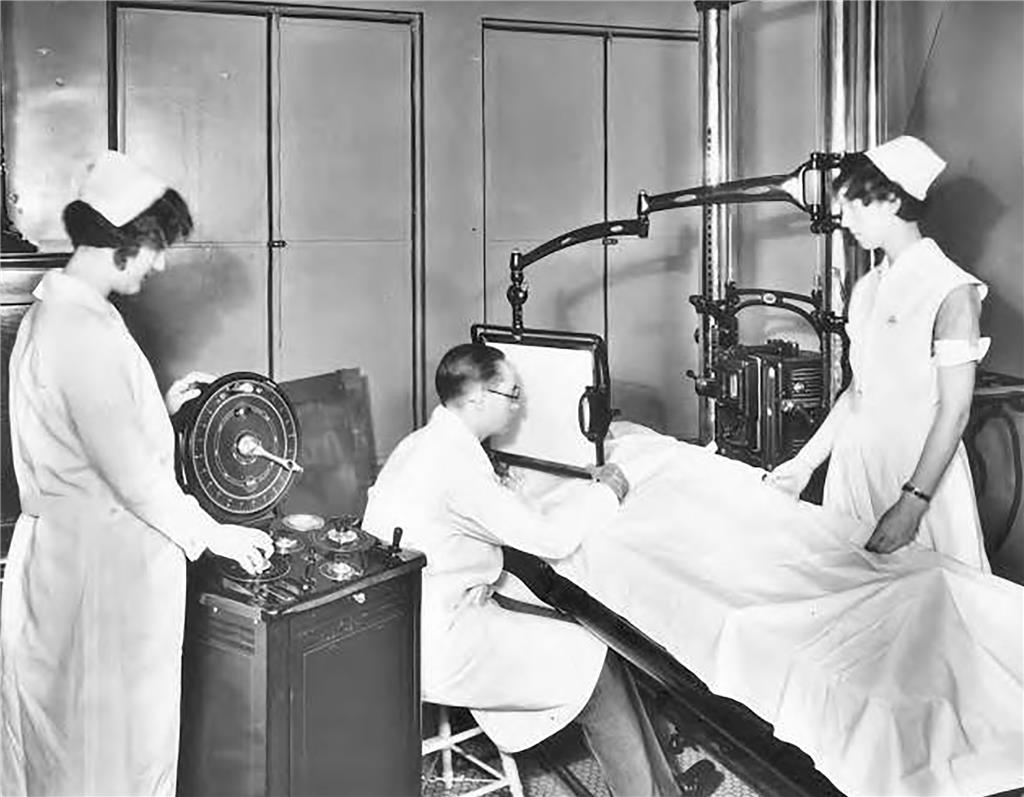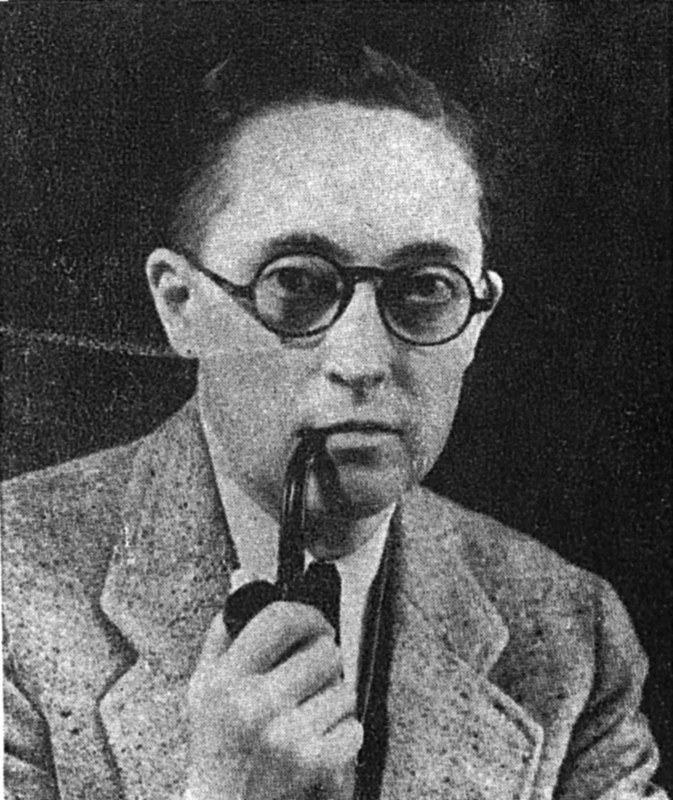"Each of us must take into account the raw material which heredity dealt us at birth and the opportunities we have had along the way, and then work out for ourselves a sensible evaluation of our personalities and accomplishments."
Alan L. Hart (1890 – 1962) was a US American 20th-century physician, radiologist, disease researcher, and novelist who pioneered the use of x-ray in detection for tuberculosis. He spent the latter part of his career in public health, undoubtedly saving many thousands of lives across the country expanding tb services and education throughout rural areas. In 1917 Hart was one of the first people to undergo a gender affirming hysterectomy in the United States, and is the first documented case of a female to male transition in medical literature in the English speaking world.
“I had to do it. For years I had been unhappy. With all the inclinations and desires of the boy I had to restrain myself to the more conventional ways of the other sex. I have been happier since I made this change than I ever have in my life, and I will continue this way as long as I live’
interview with Hart about his hysterectomy
Hart begin expressing himself as a boy starting at least age 4, and was largely accepted by his family as male, with his grandfathers obituary in 1921 listing Hart as his grandson. A family friend of his stated in a 1921 interview “Young Hart was different, even then. Boys' clothes just felt natural. Hart always regarded himself as a boy and begged his family to cut his hair and let him wear trousers. Hart disliked dolls but enjoyed playing doctor. He hated traditional girl tasks, preferring farm work with the menfolk instead. The self reliance that became a lifelong trait was evident early: once when he accidentally chopped off his fingertip with an axe, Hart dressed it himself, saying nothing about it to the family.” During childhood school, Hart wrote most of his assignments under his first chosen name of Robert Allen Bamford Jr.
Hart received a total of 4 degrees in his life. He received a pre med degree in 1912 from Portland, Oregon’s Lewis & Clark College, then known as Albany College, followed by a medicine degree doctorate from the University of Oregon Medical Department in Portland (now Oregon Health & Science University) in 1917. His doctorate was originally issued under "Hart, [deadname] aka Robert L., M.D.”. which prompted a legal name change in 1918. He took his first medical job at a Red Cross hospital at this point. In 1928, Hart received a master’s degree in radiology from the University of Pennsylvania and was named director of radiology at Tacoma General Hospital. After working for several years as a tuberculosis consultant in Washington and Idaho, Alan Hart moved with his wife to Hartford, Connecticut, where he received a master’s degree in public health from Yale University in 1948. Around this time, Hart began taking testosterone and is described as having a deeper voice and being able to grow facial hair as a result.
TUBERCULOSIS

Hart devoted much of his career to research and treatment of tuberculosis. By the dawn of the 19th century, tuberculosis—or consumption—had killed one in seven of all people that had ever lived. Throughout much of the 1800s, consumptive patients sought "the cure" in sanatoriums, where it was believed that rest and a healthful climate could change the course of the disease. In 1882, Robert Koch's discovery of the tubercule baccilum revealed that TB was not genetic, but rather highly contagious; it was also somewhat preventable through good hygiene. After some hesitation, the medical community embraced Koch's findings, and the U.S. launched massive public health campaigns to educate the public on tuberculosis prevention and treatment. TB usually attacked victims' lungs first; Hart was among the first physicians to document how it then spread, via the circulatory system, causing lesions on the kidneys, spine, and brain, eventually resulting in death. With no cure for the disease in its advanced stages the only hope for sufferers was early detection.
X-rays, or Roentgen rays as they were more commonly known until World War Two, had been discovered only in 1895, when Hart was five years old. In the early twentieth century they were used to detect bone fractures and tumors, but Hart became interested in their potential for detecting tuberculosis. Since the disease often presented no symptoms in its early stages, X-ray screening was invaluable for early detection. Even rudimentary early X-ray machines could detect the disease before it became critical. This allowed early treatment, often saving the patient's life. It also meant sufferers could be identified and isolated from the population, greatly lessening the spread of the disease. By the time antibiotics were introduced in the 1940s, doctors using the techniques Hart developed had managed to cut the tuberculosis death toll down to one fiftieth of what it had previously been.
In 1937, Hart was hired by the Idaho Tuberculosis Association and later became the state's Tuberculosis Control Officer. He established Idaho's first fixed-location and mobile TB screening clinics and spearheaded the state's war against tuberculosis. Between 1933 and 1945 Hart traveled extensively through rural Idaho, covering thousands of miles while lecturing, conducting mass TB screenings, training new staff, and treating the effects of the epidemic. An experienced and accessible writer, Hart wrote widely for medical journals and popular publications, describing TB for technical and general audiences and giving advice on its prevention, detection, and cure. At the time the word "tuberculosis" carried a social stigma akin to venereal disease, so Hart insisted his clinics be referred to as "chest clinics", himself as a "chest doctor", and his patients as "chest patients". Discretion and compassion were important tools in treating the stigmatised disease.
In 1943, Hart, now recognized as pre-eminent in the field of tubercular roentgenology, compiled his extensive evidence on TB and other X-ray-detectable cases into a definitive compendium, These Mysterious Rays: A Nontechnical Discussion of the Uses of X-rays and Radium, Chiefly in Medicine, still a standard text today. The book was translated into Spanish and several other languages
PBS - TB in America: 1895-1954
Join our public Matrix server! https://matrix.to/#/#tracha:chapo.chat
As a reminder, be sure to properly give content warnings and put sensitive subjects behind proper spoiler tags. It's for the mental health of not just your comrades, but yourself as well. Here is a screenshot of where to find the spoiler button.



@BountifulEggnog@hexbear.net sorry finally getting back to your response from before
executive dysfunction
it's tough rn for me, luckily my job is pretty chill. When there's emergencies I am able to focus, but I struggle to do things on my own, like read docs etc.Watching youtube videos used to help, sometimes the right music does, turns out watching people drive garbage trucks on livestreams is good or people clearing out beaver dams or play silly games...
I think it helps, because I am chronically understimulated. Sometimes I will play a bit of guitar if I need to think, the finger motion even though I'm just "noodling" helps jog my brain and get it into a better state.
I think caffeine helps me too, I am always coffee, but these days I'm wondering if I should pursue ADHD medication. Friend of mine just got diagnosed and went on and she's having a really good time with the meds, making her way through a nursing program now when she was really struggling before medication. I'd like to be able to focus better...so...
As someone with ADHD, this whole comment is screaming ADHD. If you have the means get in touch with a psychiatrist! Meds aren't a magic bullet that turn you into a normal functioning person 100% of the time but they're genuinely life changing when you find a medication that works for you!
totally, i was diagnosed ADHD years ago, tried dex for a bit, couldnt really make it work for me, and gave up, so i'm hoping i can get back to it tbh
There's other ones besides Vyvanse (I can't remember the generics name, it's like dexlesamphetamine I swear to god). There's Concerta as well (and more)
Yeah I've heard that basically all the different ones work for different people. The extended release ones seem like they'd be good for me I guess? Or maybe not lol
Ah, okay. Out of the ones I trialed dex was easily the worst for me, literally made me feel like I was gonna die. I'm on adderall now which is chemically similar but somehow works much better. I hope you find a med that works for you!
yikes! i think i was on too low a dose to do anything, but good to know
No all good, I still have people I need to respond to as well
Reading docs I think reading is an area its really noticeable for me.
I think reading is an area its really noticeable for me.
Could you maybe explain understimulation a bit? Like I know overstimulation pretty well, but I can't pin down if understimulation is also a problem for me. I end up switching between tasks a lot, even when its something I like. Doing something with my fingers is a good idea though, I should go back to rubiks solving.
I need to try caffeine too, I'm always hesitant because I already have such a hard time falling asleep. If you think meds will help you should try, I've heard good things from all my adhd friends.
I think a more classical definition is like, you can't read a book for longer than a minute, because it's so boring, so you go do the dishes, or you need to put on music, or move your body, or play with a thing. You're stuck in a meeting but people's voices are so boring and the topic isn't interesting and so you don't retain anything.
You put off sorting through a pile of receipts in your office on the floor because gah you don't even know where to put half of them and also there's just more attention-grabbing interesting things to do. (omg I am staring at the pile rn)
When you do manage to read the book or the shitty documentation for work, you go super fucking slow on it... like a sentence every ten minutes, constantly taking breaks to look at sites, watch a video, etc. It can be helped if there's a bit more stimulation ... today I did a voice call with my gf and we just watched videos together which actually really helped me to get through some of it. I of course don't want to become dependent on her in this way in order to get my job done because that seems unsustainable but it was nice nonetheless.
It's truly painful tbh... this is why stimulants help, because they can make these activities actually feel rewarding I guess?